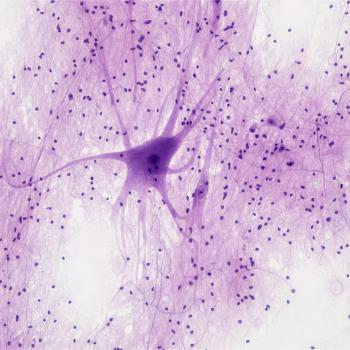When people establish a belief, they should do so because they are utterly convinced that what they are believing, that which they are putting their confidence in, is true.
Truth is paramount. The idea of truth has always been very straightforward. Truth is that which is ultimately, finally, and absolutely real. Truth is the “way it is” and therefore is totally trustworthy and dependable. Accuracy is an essential component of truth. In fact, truth does not yield to opinion, popular fashion, or even a person’s sincerity of belief. It does not matter how sincerely you believe something if, in the end, it is false. Truth is in harmony with reality, and we should therefore always seek to live our lives in harmony with what is true.
As human beings, we have, however, an unusual relationship with the truth. There is a side of us that wants to pursue the truth, particularly if it is leading us in a direction we want to go. On the other hand, we seem to balk when it leads us in a direction we do not want to go.
Often, we establish beliefs because they generally express how we want life to be. This is why Blaise Pascal says, “People almost invariably arrive at their beliefs not on the basis of proof but on the basis of what they find attractive.”
This reminds me of the documentary Enron: The Smartest Guys in the Room. In the documentary, they reveal that Jeffrey Skilling, the leader of Enron, had his eyesight corrected via LASIK surgery. After this, it seems that all employees who wore glasses followed his lead, so that no one wore glasses. The creator of the documentary saw this as a metaphor for what was going on in the company. No one was looking closely, for the longest time, at how Enron was producing such immense profitability. As journalist Joe Morgenstern described it, “For those inside Enron, as well as those outside looking in, this epic corporate scandal was a case of willful blindness.”
Willful blindness is a term used in the legal profession. It refers to any situation in which people intentionally turn their attention away from an ethical problem because the problem is too disturbing to deal with. We are afraid to look reality in the eye, because it may take us in a direction we don’t want to go. C.S. Lewis believed this was one of the great flaws in our character. In psychology it is called denial or suppression, where we suppress thoughts or beliefs that are painful or disturbing.
This seems to be part of the human condition. Several years ago, there was an interesting interview in Fortune magazine with Warren Buffet. He spoke of his philosophy on purchasing stocks. He then spoke of a flaw we human beings have in our makeup. He said that we all seem to have within us a psychological force that causes us to cling to our ideas and beliefs, even in the face of contradictory information. He then said to an interviewer:
“Now, there was a smart man who did just about the hardest thing in the world to do. Charles Darwin used to say that whenever he ran into something that contradicts a conclusion he cherished, he was obliged to write on paper the finding within 30 minutes. Otherwise, his mind would work to reject the discordant information, much as the body rejects transplants.”
Ultimately, Buffet was saying that in order to live wisely, you have to love and be committed to what is true. However, the problem is that we would rather cling to our old beliefs, even if they are false.
There is an event in the New Testament where you see a very clear incidence of willful blindness. Jesus has just performed a stunning miracle, by raising Lazarus from the dead. Lazarus had been in the tomb for four days, and Jesus had the stone moved from the entrance and then ordered Lazarus to come forth. There were a number of witnesses present who obviously were stunned when this dead man of four days walked out.
What is interesting is that many of those witnessing the event went straight to the Jewish religious leaders to report what had happened. These leaders had been hearing rumors that Jesus might be their long-awaited Messiah. You would think that after learning of this incredible miracle, they might wonder if Jesus was, in fact, the Messiah. You would think they might want to question Him to see if he was the one they had been waiting for over the centuries. Instead, these religious leaders realized that if Jesus continued these astonishing miracles, they would lose all of their followers and the Romans would take away their power. Instead of pursuing the truth, they began to plot how to get rid of Jesus. This is another clear example of willful blindness. They clung to their position of power and prestige instead of pursuing the truth concerning the Jewish Messiah, which was at the heart of their religious tradition.
We must recognize and come to an understanding of this natural tendency that exists in each of us. Unchecked fear always leads to denial, and we may find that we consciously deny truth its rightful place in our lives because we fear the results it may bring. This is especially true when it comes to God, spiritual reality, and the fact that Jesus desires for us to surrender our lives to Him.
Richard E Simmons III is the founder and Executive Director of The Center for Executive Leadership and a best-selling author.













